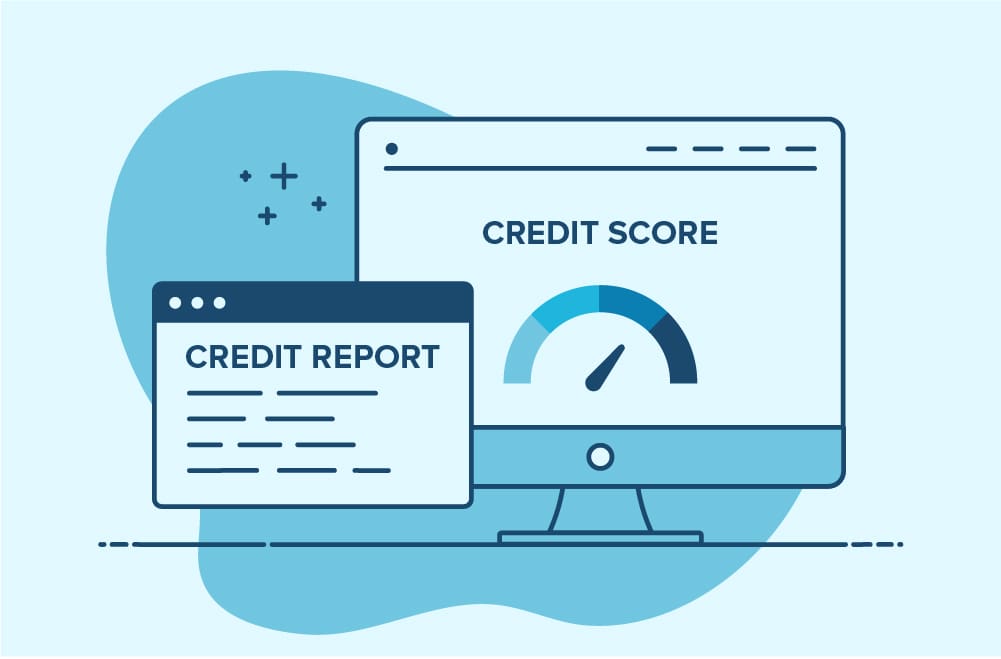How Long Does A Hard Inquiry Stay In Your Credit Report? Find Out Here!
Ever wondered how long those pesky hard inquiries stick around on your credit report? Well, buckle up because we're diving deep into the world of credit scores and hard inquiries. If you've applied for a loan, credit card, or even rented an apartment, chances are you've had a hard inquiry pop up. But how long do they linger, and what impact do they really have? Let's break it down.
Before we dive into the nitty-gritty, let's address the elephant in the room: hard inquiries matter. They're like little footprints on your credit journey, and while they might not seem like a big deal at first, they can affect your credit score in ways you didn't expect. So, whether you're trying to boost your credit score or just curious about the process, this article has got you covered.
Now, here's the deal: hard inquiries don't last forever, but they can stick around for quite a while. Understanding how long they stay on your credit report and how they impact your financial health is key to making smart decisions. Let's get started and demystify this whole hard inquiry thing once and for all.
Read also:Brooke Tilli Net Worth The Rising Starrsquos Journey And Financial Milestones
Here's a quick overview of what we'll cover:
- What is a Hard Inquiry?
- How Long Does a Hard Inquiry Stay?
- Impact of Hard Inquiries on Your Credit Score
- What Happens with Multiple Hard Inquiries?
- Soft vs. Hard Inquiries: What's the Difference?
- How to Avoid Damage from Hard Inquiries
- Can You Remove a Hard Inquiry?
- Checking Your Credit Report for Hard Inquiries
- Tips for Maintaining Credit Health
- Final Thoughts on Hard Inquiries
What is a Hard Inquiry?
Alright, let's start with the basics. A hard inquiry happens when a lender or creditor checks your credit report to decide whether to approve your application. This could be for anything from a mortgage to a new credit card. It's basically their way of peeking into your financial past to see if you're a good risk.
Unlike soft inquiries, which are more like background checks and don't affect your credit score, hard inquiries can have a real impact. When you authorize a lender to pull your credit report, it gets recorded as a hard inquiry. And yes, that little record can stick around for a while.
Examples of Hard Inquiries
Here's a quick list of situations where a hard inquiry might happen:
- Applying for a mortgage
- Requesting a new credit card
- Taking out a personal loan
- Renting an apartment (sometimes)
- Opening a new utility account
How Long Does a Hard Inquiry Stay?
So, the big question: how long does a hard inquiry stay on your credit report? The answer is two years. Yep, that's right—those little inquiries can hang around for up to 24 months. But here's the kicker: while they stay on your report for two years, they typically only affect your credit score for the first year.
After that, they're still there for lenders to see, but they won't ding your score anymore. So, if you're worried about a recent inquiry, just remember it'll fade over time. But hey, that doesn't mean you should go wild applying for every credit card under the sun!
Read also:The Fattest Animal In The World A Deep Dive Into Natures Largest Creatures
Why Two Years?
The reason hard inquiries stick around for two years is to give lenders a full picture of your credit behavior. It's like a financial breadcrumb trail that shows how often you've been seeking new credit. Lenders use this information to assess your risk level. But don't stress too much—most people don't have so many inquiries that it becomes a major issue.
Impact of Hard Inquiries on Your Credit Score
Now, let's talk about the elephant in the room: how much do hard inquiries really affect your credit score? The truth is, it depends on your overall credit history. For most people, a single hard inquiry will only drop your score by about 5 to 10 points. Not the end of the world, right?
But here's the thing: if you have a short credit history or not many accounts, those 5 to 10 points could make a bigger difference. And if you've got a bunch of inquiries piling up, it could start to look like you're desperate for credit, which lenders don't love.
Factors That Affect the Impact
Several factors can influence how much a hard inquiry affects your score:
- Length of credit history
- Number of accounts you have
- Recent credit activity
- Payment history
What Happens with Multiple Hard Inquiries?
Here's where things can get a little dicey. If you're applying for credit left and right, those multiple hard inquiries can start to add up. Each one might only knock off a few points, but if you've got a dozen inquiries in a short period, it can start to hurt.
Luckily, there's a little grace period for certain types of loans, like mortgages and car loans. If you're shopping around for the best rate, most credit scoring models will group those inquiries together if they happen within a 14- to 45-day window. So, you don't get penalized for trying to find the best deal.
Rate Shopping and Hard Inquiries
Here's a quick breakdown of how rate shopping works:
- Mortgage inquiries within 30 days count as one.
- Auto loan inquiries within 14-45 days count as one.
- Student loan inquiries within 14-45 days count as one.
Soft vs. Hard Inquiries: What's the Difference?
Alright, let's clear up the confusion between soft and hard inquiries. A soft inquiry is like a casual check-in. It happens when you check your own credit score, when an employer checks your credit, or when a credit card company pre-approves you for an offer. These don't affect your credit score at all.
On the other hand, hard inquiries are the real deal. They happen when you actually apply for credit, and they can impact your score. Think of soft inquiries as a quick glance, and hard inquiries as a deep dive.
Examples of Soft Inquiries
Here are some common soft inquiry situations:
- Checking your own credit report
- Potential employers reviewing your credit
- Credit card companies pre-approving you for offers
- Insurance companies checking your credit for quotes
How to Avoid Damage from Hard Inquiries
If you're worried about hard inquiries hurting your credit score, there are a few strategies you can use to minimize the damage. First off, don't apply for credit willy-nilly. Only apply when you really need it, and do your homework beforehand.
Second, if you're shopping around for a loan, try to keep all your applications within that 14- to 45-day window. That way, they'll count as one inquiry instead of several. And finally, work on building a strong credit history. The better your overall credit profile, the less those little inquiries will matter.
Tips for Minimizing Damage
- Apply for credit only when necessary
- Shop around for loans within a short time frame
- Build a strong credit history
Can You Remove a Hard Inquiry?
Now, here's a question a lot of people ask: can you get rid of a hard inquiry? The short answer is, it depends. If the inquiry was made without your permission or was the result of fraud, you might be able to dispute it and have it removed. But if it was a legitimate inquiry, it's going to stick around for those two years.
That said, if you notice an error on your credit report, don't hesitate to reach out to the credit bureau and dispute it. Mistakes happen, and it's your right to have them corrected.
Steps to Dispute a Hard Inquiry
Here's how you can dispute a hard inquiry:
- Obtain a copy of your credit report
- Identify the inaccurate inquiry
- Contact the credit bureau in writing
- Provide supporting documentation
Checking Your Credit Report for Hard Inquiries
Regularly checking your credit report is one of the best ways to stay on top of things. You're entitled to one free credit report per year from each of the three major credit bureaus: Experian, Equifax, and TransUnion. Take advantage of that and keep an eye out for any suspicious activity.
Knowing what's on your credit report can help you spot errors, fraud, or even just too many inquiries. And hey, it's always good to know what lenders are seeing when they pull your report.
How to Get Your Free Credit Report
Here's how you can get your free credit report:
- Visit AnnualCreditReport.com
- Fill out the request form
- Choose which credit bureau report you want
- Review your report for errors
Tips for Maintaining Credit Health
Finally, let's talk about some general tips for keeping your credit in tip-top shape. First and foremost, pay your bills on time. Late payments can do way more damage than a few hard inquiries. Second, keep your credit utilization low. Try to keep your balances below 30% of your credit limit.
And lastly, don't be afraid to check your credit score regularly. Knowledge is power, and the more you know about your credit, the better equipped you'll be to make smart financial decisions.
Key Credit Health Tips
- Pay bills on time
- Keep credit utilization low
- Monitor your credit score regularly
Final Thoughts on Hard Inquiries
So, there you have it—the lowdown on hard inquiries and how long they stick around on your credit report. While they can have an impact, they're not the end of the world. Just be mindful of how often you're applying for credit and take steps to build a strong credit history.
Remember, your credit score is just one piece of the financial puzzle. Focus on making smart decisions, staying informed, and taking care of your overall financial health. And if you've got any questions or want to share your own experiences, drop a comment below. Let's keep the conversation going!



